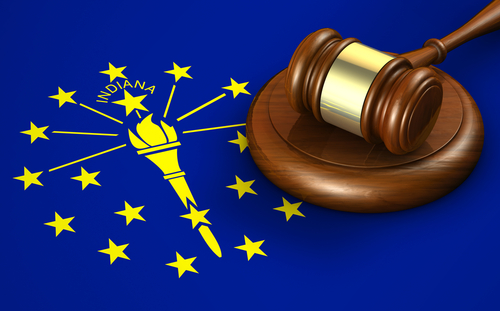This firm is fighting mandatory COVID-19 vaccines with legal filings and warnings

Image from Shutterstock.
The New York law firm Siri & Glimstad is fighting mandatory COVID-19 vaccinations with litigation and warning letters dispatched to schools and employers.
The Washington Post has a story on Siri & Glimstad’s efforts and arguments—partly funded by the Informed Consent Action Network, a Texas-based nonprofit group fighting mandatory vaccines.
Even before the COVID-19 pandemic, the Informed Consent Action Network paid the law firm in 2019 nearly $1.3 million, according to the group’s most recent tax filing.
Siri & Glimstad contends that employers and universities can’t require COVID-19 vaccines because they were approved in an expedited process. In a February column for the health news site Stat, law firm managing partner Aaron Siri made that argument and warned of “costly and time-consuming litigation” for those enacting requirements.
The article noted that Siri & Glimstad has represented the Informed Consent Action Network.
“Left unsaid,” the Washington Post reports, “was the fact that Siri and a law partner were representing a Wisconsin nursing home employee objecting to one such requirement. The piece also did not note significant disagreement over what the law allows.”
Siri & Glimstad has also sent warning letters to Rutgers and Princeton universities and officials in one Wisconsin county. And the firm is acting as co-counsel for a fired sheriff’s deputy in North Carolina who refused to disclose his vaccination status.
According to the Washington Post, there is little caselaw on mandatory vaccines following emergency use authorization; the only other vaccine that won such clearance was for anthrax.
A federal law governing emergency authorization said people must be informed of the option to accept or refuse such an approved product, along with the consequences of refusing. Michelle M. Mello, a law and medicine professor at Stanford University, told the Washington Post that it’s not clear whether the law addresses required vaccines at work or school.
In December, the U.S. Equal Employment Opportunity Commission offered its guidance. The EEOC said employers can require their employees to get COVID-19 vaccinations as a condition of going to work, as long as there are reasonable accommodations for those who decline because of a disability or religious beliefs.
Once vaccines receive full approval, legal challenges will become more difficult, according to Robert F. Kennedy Jr., an environmental lawyer and an anti-vaccine advocate who has advanced the much-disputed view that a vaccine ingredient can cause autism, according to the Washington Post.
In an interview with the Washington Post, Kennedy pointed to a 1905 U.S. Supreme Court decision, Jacobson v. Massachusetts, which upheld the power of state government to force residents to get vaccinated against smallpox or pay a fine.
To succeed, “you’d need to go to the Supreme Court and get a reversal of Jacobson,” he said.



